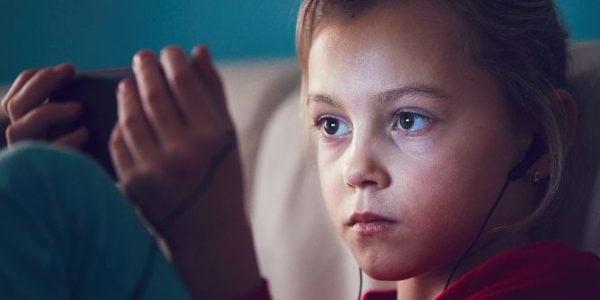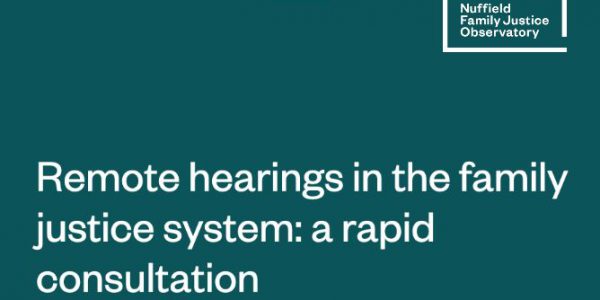Remote or hybrid hearings have now been widely adopted in the family court in response to COVID-19 restrictions but, while many improvements have been made in the six months since they were introduced, both professionals and parents are reporting concerns about fairness and the ability to practice humanely. Many parents are taking part remotely alone, from their homes, and often without the technology or support they need to properly take part in crucial – often painful – hearings at which life-changing decisions are made about their children.
More than 1,300 parents, family members and professionals in the family justice system across England and Wales responded to a rapid consultation by Nuffield Family Justice Observatory on the use of telephone and video hearings in the family courts six months on – a follow-up to a first consultation in April initiated by the President of the Family Division.
In a new survey, which formed part of the consultation, most professionals (86%) felt that things were working more smoothly and some reported benefits to working remotely, for both parties and themselves. They shared concerns about the difficulties of being sufficiently empathetic, supportive and attuned to lay parties when conducting hearings remotely, but more than three quarters (78%) felt that fairness and justice had been achieved in the cases they were involved with most or all of the time.
However, a majority of parents and relatives (88%) reported having concerns about the way their case was dealt with, and two thirds (66%) felt that their case had not been dealt with well. Two in five (40%) said they had not understood what had happened during the hearing.
Both professionals and parents expressed concern about the difficulty of creating an empathetic and supportive environment when hearings are held remotely. There was agreement that family justice is not simply administrative adjudication but is dealing with personal and often painful matters, which require an empathetic and humane approach.
There was particular concern about hearings where interim orders are made to remove babies shortly after birth, with mothers having to join by phone from hospital, or final hearings where care orders or placement or adoption orders were made, again with hearings accessed by parents on their phones. The halt in face-to-face contact between infants and parents in cases involving interim care proceedings was also highlighted as a concern. And in cases involving allegations of domestic abuse, respondents spoke of feeling retraumatised and unsafe when they had to listen to or see their alleged abuser from their own home.
Most continuing technical problems related to connectivity, and common issues included difficulty in hearing people, difficulty seeing people, and difficulty identifying who is speaking. Lay parties continue to have difficulty accessing hearings because they lack the hardware, connectivity or skills to navigate the software. Professionals report that a lack of sufficient court staff is hampering the smooth running of hearings, and that there is a particular shortage of staff sufficiently trained in set up and use of the different types of technology.
Other common problems highlighted included a lack of communication between lay parties and their legal representatives before hearings and difficulties with communication during hearings because of the need to use more than one device or to adjourn the hearing. Particular difficulties were experienced by parents who require an interpreter or who have a disability. And there was widespread concern for litigants in person in private law matters, with many examples given of support being provided by judges, magistrates, and legal advisers. The vast majority of professionals who responded to the survey (79%) had experienced hearings with one or more unrepresented party.
Lisa Harker, director of Nuffield Family Justice Observatory, said:
“We cannot put the lives of thousands of children and families on hold while we hope for face-to-face practice to resume, and it’s clear that judges, barristers and other professionals have put in enormous personal effort to keep the system moving during very challenging times.
“But equally life-changing decisions must be reached fairly for all involved. The family court is often dealing with incredibly vulnerable people, from victims of domestic abuse to mums being separated from their babies, and they must be supported to fully participate. Our consultation showed great concern among professionals for the experience of traumatised parents facing the system. It also highlighted that many of the issues could be solved with relatively simple measures.”










